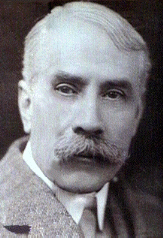Elgar, Vaughan Williams recording truly great
 ELGAR: Introduction and Allegro; Serenade; Elegy; Sospiri. VAUGHAN WILLIAMS: Fantasia on a theme by Thomas Tallis; Fantasia on "Greensleeves." Sinfonia of London; Allegri String Quartet; New Philharmonia Orchestra. Sir John Barbirolli, conductor. EMI Classics 67264; ADD; stereo.
ELGAR: Introduction and Allegro; Serenade; Elegy; Sospiri. VAUGHAN WILLIAMS: Fantasia on a theme by Thomas Tallis; Fantasia on "Greensleeves." Sinfonia of London; Allegri String Quartet; New Philharmonia Orchestra. Sir John Barbirolli, conductor. EMI Classics 67264; ADD; stereo. Each of these works by Elgar enjoys a goodly number of recordings. And in each case, the preponderance of the recordings is by British orchestras and conductors.
This seems so strange to me. This is superb music. And yet, American conductors and orchestras offer very few recordings of it. Fortunately, many of the British recordings are readily available here in the states.
It is different for the Vaughan Williams works. There are several fine recordings of them by American conductors and orchestras listed in the Schwann recordings catalog OPUS. All of the recordings considered here are excellent. Indeed, one would be hard-pressed to find better. And that, we may assume, is one of the reasons EMI Classics has included them in its splendid series "Great Recordings of the Century."
The Elgar and Vaughan Williams recordings were made in 1962, 1963 and 1966. They have been digitally remastered by EMI. The sound is absolutely top-drawer. Truly, I am amazed that recordings made that long ago can sound so good.
The Vaughan William works are so well-known that they need little comment. Indeed, everybody can whistle the theme of "Greensleeves," especially at Christmastime when it becomes "What Child Is This?"
The symphonies of Elgar, his violin concerto and especially his cello concerto have kept him in the standard repertoire of most American symphony orchestras. But his works recorded here are not well-known. And this is too bad, because this is splendid music and deserves to be ranked with some of the finest created in the first part of the 20th century.
Introduction and Allegro may come as a surprise, even to those who know Elgar fairly well. This was Sir Johns sixth recording of this 14-minute work, and it is generally considered to be his definitive effort. To those who think of Elgar as a writer of only calm and meditative pieces, the fire and force in this work may come as quite a surprise.
Serenade shows us Elgar in the medium in which most of us think of him. It is a lovely, quiet three-movement piece that runs just about as long as the Introduction and Allegro.
But to me, the exquisite Elegy (which, while different, reminded me of the Barber Adagio for Strings and the Adagiatto of the Mahler Symphony No. 5) is the very essence of the genius of Elgar. And much the same thing could be said for Sospiri. These are treasurable miniatures; together they run less than 10 minutes.
Sir John is master of all of this music. He caresses it. What he gets from his string sections (we remember that he was a cellist in a number of orchestras, including the London Symphony Orchestra) is simply superb playing.
Highest rating!
TCHAIKOVSKY: Serenade for Strings; "The Seasons" (arranged for orchestra by Alexander Gauk). Moscow Chamber Orchestra; Constantine Orbelian, conductor. Delos 3255.
Tchaikovskys Serenade for Strings is best known by its second movement. Everybody knows this waltz.
The work is structured much as a symphony would have been written at the time Tchaikovsky was writing. Add some brass and a few woodwinds, and you would have had a standard four-movement symphony.
"The Seasons" is one of the composers major works for piano solo. It runs some 42 minutes and, in that time, Tchaikovsky performs the feat of writing short works for each of the 12 months of the year. The composers publisher suggested titles for each month, all of which were readily accepted by Tchaikovsky. For instance: "January - By the Fireside," "March - Song of the Lark," "July - The Mowers Song," "November - The Troika," etc.
We remember that Tchaikovsky created a great deal of solo piano music, 16 collections of short pieces and the Sonata in G Major. Perhaps we do not hear a lot of it, maybe not as much as we should. But what can we expect of ourselves when we consider the works of a composer who wrote symphonies, concertos, operas, ballets, overtures, chamber music, you name it?
The work we hear on this recording is an orchestration of the original version for piano the composer created in 1876. The orchestral transcription was made in 1942 by the noted conductor and composer Alexander Gauk. It is considered that he did a good job, capturing much of Tchaikovskys own method of orchestration.
Both works are played splendidly by Constantine Orbelian and the excellent Moscow Chamber Orchestra. Orbelian is the first American to become director of a Russian orchestra. The conductor and orchestra have made a number of fine recordings on the Delos label, and we can hope for more in the near future.
(c) Copley News Service
advertisement

Author: King Durkee
Archives
Nathan Milstein first among equals
Musical mastery is in the details
Half century of classics sprout from modest seed
Hundred years warble: sounds of a century
A Vivaldi album for all seasons
Westminster lives on
15-work collection a tribute to compassion
Remastered recordings music to the ears
Grand band music
The elusive quality of superstars
Vault yields some forgotten gems
Remembering Rampal
Argerich is always awesome
Mahler - words and music
Liszt`s music at its best
More Articles







